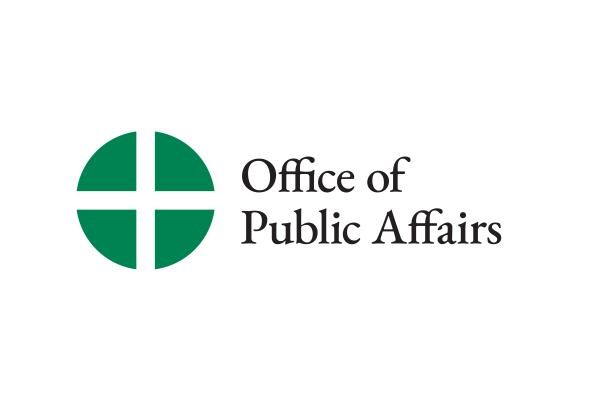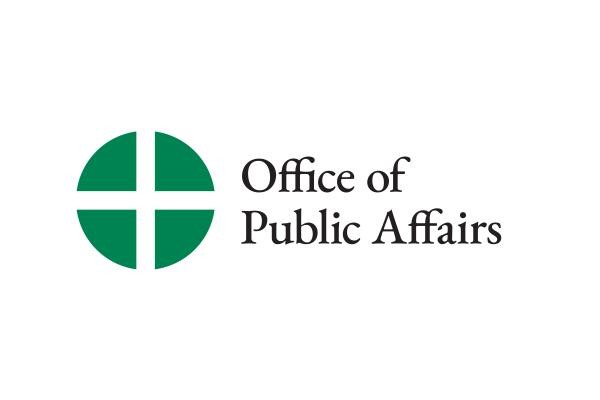Collection for the Church in Central and Eastern Europe to Help Alleviate the Great Needs That Still Remain
WASHINGTON— The national Collection for the Church in Central and Eastern Europe will take place on Ash Wednesday, March 9, in parishes across the country. With the theme Great needs remain, the collection seeks to highlight the great material and spiritual needs for the Church in the region.
WASHINGTON— The national Collection for the Church in Central and Eastern Europe will take place on Ash Wednesday, March 9, in parishes across the country.
With the theme Great needs remain, the collection seeks to highlight the great material and spiritual needs for the Church in the region. In dioceses throughout Central and Eastern Europe and the former Soviet Union regionsof Asia, aging physical structures, insufficient funding, and a lack of trained lay personsand religious are common challenges.
One way the bishops’ Subcommittee on Aid to the Church in Central and Eastern Europe responds to these needs is through educational grants. Proceeds from the collection help support laystudents, priests, religious and seminarians who receive graduate education in places such as Vienna, Rome, Lublin and Washington. They then return home to serve thelocal church in vital ways, building the capacity of the local church.
Two such examples are Lasma Latsone, of Latvia, and Father Yurko Kolasa, who was raised in the former Soviet Union.
Lasma received her doctorate at Fordham University, thanks in part to scholarships from the Collection for the Church in Central and Eastern Europe. She currently is a board member of both the Latvian Catholic Women’s Association and ANDANTE (European Alliance of Catholic Women’s Associations). Through various organizations she helps organize workshops for women and carries out charity work, especially with children in need. Lasma is also involved in adult catechesis.
Another former student, Fr. Kolasa is now the prefect of a training program for priests, seminarians and religious at the International Theological Institute (ITI) near Vienna, Austria. ITI serves as a bridge between the East and West. About 50 percent of the students come from Central and Eastern Europe, the majority of whom are Greek Catholic. He also developed a marriage preparation program that has had an important impact on the success rate of marriages in Ukraine.Fr. Kolasa’s program has been so successful that it is being used as a model also for the Romanian Greek Catholic Church and throughout Austria.
Material needs also are pressing. In a convent in Przasnysz, Poland, twenty-two Poor Clare sisters, a contemplative order, live in harsh conditions. Funds from the collection helped fix the convent’s broken heater. The lack of heat had been the cause of recurring illnesses for the sisters. Now the nuns can carry out their ministry of prayer better equipped to weather out the long, cold Eastern European winters.
In 2010, the Collection for the Church in Central and Eastern Europe gave 112 scholarships to students of the region. Overall, it also funded 314 projects in 21 countries for $6.3 million.
“Donations to the Collection for the Church in Central and Eastern Europe reach far beyond the scholarship or grant recipient,” said Cardinal Justin Rigali, Archbishop of Philadelphia and chairman of the subcommittee. “Our assistance is vital to the growth and strength of the Church in these regions.”
Declan Murphy, director of the collection, returned recently from a trip to Albania. There he saw multiple examples of the needs of the Church.
"The communist legacy in Albania with regard to religion, particularly the Catholic Church, is uniquely terrible. Fully 95 percent of the country's houses of worship were razed or forcibly converted to secular uses. The Catholic cathedral in Shkoder, for example, was degraded to a sports arena. The human toll was even worse,” Murphy said. “There were 300 Albanian Catholic priests in 1944. By the fall of Communism, there were 30. Today Albania's ancient Catholic community, which dates from the time of St. Paul, is again a mission territory where heroic bishops and priests are hard at work on a Catholic revival. It will take decades to reverse the damage."
----
Keywords: Eastern Europe, Central Europe, collection, Cardinal Justin Rigali, Sub-committee on the Church in Central and Eastern Europe, U.S. bishops, USCCB
# # # # #


